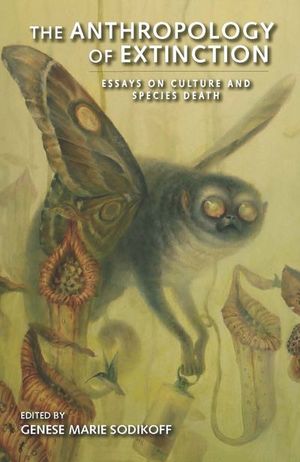The Anthropology of Extinction
Published by Indiana University Press
Exploring the endings of species, languages, cultures, and ways of life, this collection “provocatively makes one think about extinction in novel ways.” —Biological Conservation
We live in an era marked by an accelerating rate of species death, but since the early days of the discipline, anthropology has contemplated the death of languages, cultural groups, and ways of life. The essays in this collection examine processes of—and our understanding of—extinction across various domains. The contributors argue that extinction events can be catalysts for new cultural, social, environmental, and technological developments—that extinction processes can, paradoxically, be productive as well as destructive.
The book considers a number of widely publicized cases: island species in the Galápagos and Madagascar; the death of Native American languages; ethnic minorities under pressure to assimilate in China; cloning as a form of species regeneration; and the tiny hominid Homo floresiensis fossils (“hobbits”) recently identified in Indonesia. The Anthropology of Extinction offers compelling explorations of issues of widespread concern.
We live in an era marked by an accelerating rate of species death, but since the early days of the discipline, anthropology has contemplated the death of languages, cultural groups, and ways of life. The essays in this collection examine processes of—and our understanding of—extinction across various domains. The contributors argue that extinction events can be catalysts for new cultural, social, environmental, and technological developments—that extinction processes can, paradoxically, be productive as well as destructive.
The book considers a number of widely publicized cases: island species in the Galápagos and Madagascar; the death of Native American languages; ethnic minorities under pressure to assimilate in China; cloning as a form of species regeneration; and the tiny hominid Homo floresiensis fossils (“hobbits”) recently identified in Indonesia. The Anthropology of Extinction offers compelling explorations of issues of widespread concern.
BUY NOW FROM
COMMUNITY REVIEWS

